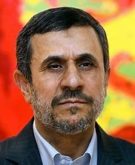Iranwire – As Iranians were marking the end of the Nowruz holidays in early April, more than 25 Baha’is were summoned and arrested in the cities of Shiraz, Mashhad, Bandar Abbas, and Karaj. Others saw their homes raided and searched by security forces.

The crackdown, initiated by the Ministry of Intelligence and reinforced by the judiciary, came just as Iran was facing its fourth wave of coronavirus cases, and most cities had been newly-placed on high alert.
Prisons in Iran have been particularly dangerous places during the pandemic due to poor hygiene standards and cramped conditions, and imprisoned Baha’is were at even greater risk. Ministry of Intelligence agents’ raids on Baha’i homes and search of their belongings also pose a threat to health; such measures contradict the established health protocols set out by the country’s authorities.
IranWire spoke to Simin Fahandej, the Baha’i International Community Representative at the United Nations, about the recent spate of harassment and arrests.
***
“The persecution of Baha’is has been constant and has not stopped over the last few decades,” Simin Fahandej told IranWire. “But at, times these pressures have intensified.
“Now, even as Iran grapples with the coronavirus crisis and citizens are under economic, psychological, and other pressures, the Iranian government is trying to eliminate the Baha’i community by increasing pressure on Baha’i citizens. Unfortunately, in the last few days, we have seen that the Iranian government, instead of doing its duty to protect its citizens in this situation and find ways to get the country out of crisis like other governments in the world, is putting more pressure on a part of society — that is, the Baha’i community. It has arrested and imprisoned Baha’is for their beliefs, and even raided their homes and confiscated many of their personal belongings.”
Simin Fahandej said that in her view, Baha’is were being targeted solely for their beliefs, though others have argued that the prominent position of many Baha’is in society, including in business, enterprise and medicine, might also have made them a target for the regime’s ire.
“What is happening to Baha’is in Iran is a religious inquisition, although this is prohibited under Iranian and Islamic law,” Fahandej said, highlighting Article 23 of the Constitution of the Islamic Republic of Iran, which explicitly outlaws attacks or reprimands simply for having and expressing an opinion. “The truth is that the Baha’is in Iran are being persecuted only because of their heartfelt belief in the Baha’i faith, and these recent arrests and detentions are for that.”
Iran, like most countries in the world, has endured multiple crises over the last year. At the same time, authorities stepped up the pressure on Baha’is significantly. As with the most recent cases, dozens of Baha’i citizens have been detained, imprisoned, and tried in cities across Iran, and many of them have had their homes searched. Two courts of appeal, in Tehran and Mazandaran, ruled that Baha’is in the village of Eival in Sari county had procured their properties on illegitimate grounds and ordered them to be confiscated and handed over to the Executive Headquarters of the Imam’s Directive. Baha’is have also faced expulsion from the village, as well as arrests. One prominent case concerning the arrest of Baha’i historian Touraj Amini, who specializes in Iran’s Qajar era, met with international outcry and campaigns to secure his release.
The Iranian League for the Defense of Human Rights published a summary of a top secret meeting between the Commission for Tribes, Sects and Religions and representatives of 19 security and intelligence organizations held in Sari on September 21, 2020. During the meeting, decisions were taken to significantly increase suppression tactics on people belonging to minority religions not recognized in the country’s constitution, with specific focus on followers of the Baha’i faith and Gonabadi dervishes, who have also faced enormous pressure from the regime.
In view of these measures, it would appear that the Iranian government is taking advantage of the current situation — at a time when the media and the public in general have their attention on Covid-19 and its devastating consequences — to intensify its persecution campaign against Baha’is.
“Over the years, the Iranian government has tried to target the Baha’is in Iran with a range of lies and accusations and has used every pretext to suppress them,” Fahandej said. “During the coronavirus crisis, all citizens are facing severe problems and pressures, but the Iranian government is putting additional pressure on the Baha’is by harassing them.”
Fahandej says the Iranian government has consistently tried to force them to renounce their religion by depriving them of their civil rights, including the right to work and study. But the Baha’is have always had one desire: to live in their own country like other citizens, without being persecuted or deprived of their rights. She points out the simplicity of the request, and one that is easily accommodated in many other countries around the world. For the Iranian government, however, this basic formula has been impossible.
Considering the global response to the jailing of Touraj Amini, IranWire asked Simin Fahandej whether such international prominence has an impact.
“International pressures have always been effective,” she said. “History has shown that the lack of global pressure on oppressive states has always led them to continue to oppress their citizens and even to intensify their measures. Revealing this information has always helped bring the persecution to the world’s attention and led to international action, and it has always been effective. For this reason, today the Iranian government can no longer continue to persecute the Baha’is in Iran in the dark without having to respond to the international community.”
 Shabtabnews In this dark night, I have lost my way – Arise from a corner, oh you the star of guidance.
Shabtabnews In this dark night, I have lost my way – Arise from a corner, oh you the star of guidance.


